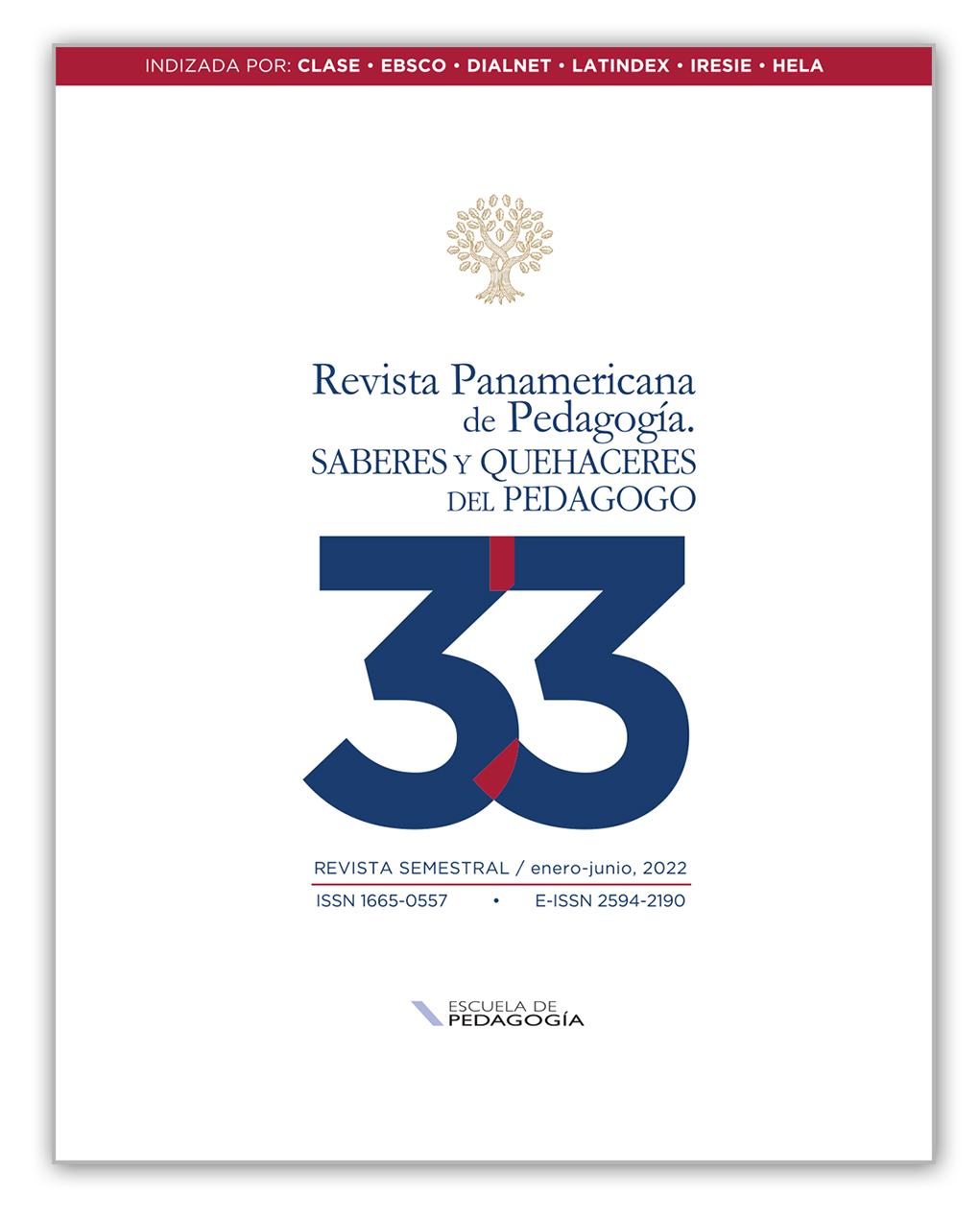Published 2021-12-31
Keywords
- Culture and Humanization,
- Reader Profile,
- Literature Value,
- Bring Literature Alive,
- Reading Promotion
- University Students ...More
Copyright (c) 2021 Revista Panamericana de Pedagogía

This work is licensed under a Creative Commons Attribution-NonCommercial-ShareAlike 4.0 International License.
How to Cite
Abstract
When reading, it is important to focus not only on how much of it is done, but on what is read and why; and think about whether the texts that have been read affect the humanisation process. Literature is a potential source of comprehensive education or integral development, since it encapsulates the culture and human condition. In the university context and in order to successfully implement activities that promote reading, it is essential to know the literary reading profile of students: how much they like and do read literature, the importance they give to reading literary works, how often they bring it to life and the extent in which they agree to participate in certain activities that promote the reading of literary works (if those are offered at their university). A quantitative study was conducted with a sample of 1,111 first semester students at a Private University in Mexico, through the design and application of a Likert-type survey. Hierarchical cluster analysis yields as a result three levels of literary reading profile according to the disposition of the students towards literature: low, medium and high. In general, it is important to implement activities that emphasize the transforming effect of literature and invite students to bring reading alive.
References
- Arendt, H. (2017). La condición humana. PAIDÓS.
- Álzaga, Florinda (2001). La literatura más allá de la estética. Círculo: Revista de Cultura, Vol. XXX, 65-75.
- Argüelles, J. D. (2017). ¿Qué leen los que no leen? El poder inmaterial de la lectura, la tradición literaria y el hábito de leer. OCEANO.
- Astin, A. W. (1984). Student Involvement: A Developmental Theory for Higher Education. Journal of College Student Development, 5(40), 518-529.
- Eco, U. (2017). Sobre algunas funciones de la literatura. Sobre literatura. Penguin Random House.
- Fromm, E. (1980). Ética y Psicoanálisis. Fondo de Cultura Económica.
- García, M. (2013). Kierkegaard y la comunicación indirecta. Algunos comentarios a La Alternativa. Tópicos. Revista de Filosofía, 5(1), 113-139. https://doi.org/10.21555/top.v5i1.515
- George, D. & Mallery, P. (2003). SPSS for Windows step by step: A simple guide and reference. 11.0. Allyn & Bacon.
- Goodman, K. (2015). Sobre la lectura. PAIDÓS.
- IBBY MÉXICO (2019). Segunda Encuesta Nacional sobre Consumo Digital y Lectura entre Jóvenes Mexicanos. https://www.ibbymexico.org.mx/wp-content/uploads/2019/12/present-definitiva-Ejecutivo-LECTURA1901.pdf
- Instituto Nacional de Estadística y Geografía (INEGI) (2020). Módulo sobre lectura (MOLEC). Principales resultados. Febrero 2020. https://www.inegi.org.mx/contenidos/programas/molec/doc/resultados_molec_feb20.pdf
- Larrosa, J. (2003). La experiencia de la lectura, Literatura, experiencia y formación. Fondo de Cultura Económica.
- López Quintás, A. (1994). Cómo formarse en ética a través de la literatura: análisis estético de obras literarias. Rialp.
- Manguel, A. (2014). El viajero, la torre y la larva. El lector como metáfora. Fondo de Cultura Económica.
- Organización de las Naciones Unidas para la Educación, la Ciencia y la Cultura (UNESCO) (1982). Declaración de México sobre las Políticas Culturales. Conferencia mundial sobre las políticas culturales. https://culturalrights.net/descargas/drets_culturals400.pdf
- Pérez, J. A. (1995). Filosofía y crítica de la cultura. Trotta.
- Pérez, R. (2010). La Disposición de Ánimo (o de Espíritu) en Max Scheler: Elementos para la Orientación Filosófica. HASER. Revista Internacional de Filosofía Aplicada, 1, 67-89. https://idus.us.es/bitstream/handle/11441/58387/LA%20DISPOSICI%c3%93N%20DE%20%c3%81NIMO%20%28O%20DE%20ESP%c3%8dRITU%29%e2%80%9d%20EN%20MAX.pdf?sequence=1&isAllowed=y
- Reyes, A. (1944). El deslinde. Fondo de Cultura Económica.
- Reyes, A. (1997). Hermes o de la comunicación humana. La experiencia literaria. Obras Completas de Alfonso Reyes XI. Fondo de Cultura Económica.
- Rivas, R. (2013). Erich Fromm: Bases para una antropología paradójica y una ética «negativa». EN-CLAVES del pensamiento, 7(14), 103-122. Recuperado 19-11-2021. http://www.scielo.org.mx/scielo.php?script=sci_arttext&pid=S1870-879X2013000200005
- Scheler, M. (1937). El saber y la cultura. Editorial Cultura.
- Scheler, M. (2003). El puesto del hombre en el cosmos. Editorial Losada.
- Sobrevilla, D. (1998). Filosofía de la Cultura. Trotta.
- Steiner, G. (2003). Humanidad y capacidad literaria. Lenguaje y silencio. Gedisa.
- Tolkien, J. R. R. (1994). Sobre los cuentos de hadas. Árbol y hoja y el poema Mitopoeia. Minotauro.
- Torres, F. (2009). Involucramiento estudiantil del universitario mexicano y su relación con el desarrollo académico y personal. Tesis. Estado de México.
- Vargas Llosa, M. (2000). Un mundo sin novelas. Letras libres. https://www.letraslibres.com/mexico/un-mundo-sin-novelas
- Zaid, G. (1982). La feria del progreso. Taurus.






